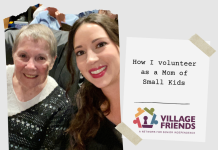 My youngest and her friend spent a day broiling in the sun selling pictures for Kent one Saturday. He takes great pictures of youth sports and has turned his love of photography into a small business. Needing helpers, he started hiring the kids and their friends. He paid well, so it was a win-win situation. But at the time, it was still a work in progress. This particular Saturday, after baking their brains in the sun for hours, they were on their way home. A tentative voice came from the back seat. “Mr. Smith. I have a small list of grievances.”
My youngest and her friend spent a day broiling in the sun selling pictures for Kent one Saturday. He takes great pictures of youth sports and has turned his love of photography into a small business. Needing helpers, he started hiring the kids and their friends. He paid well, so it was a win-win situation. But at the time, it was still a work in progress. This particular Saturday, after baking their brains in the sun for hours, they were on their way home. A tentative voice came from the back seat. “Mr. Smith. I have a small list of grievances.”
“Speak.”
“Well, you need a tailgate tent for us to sit under. You also need some new sunscreen. The sunscreen you gave us was curdled.”
“Sorry about that. It’s been in the console of my truck for a few years.”
“That’s all.”
“Both of your grievances are fair points. I’ll see what I can do.”
“Thank you.”
No long list, no critical tirade, just a few valid points made in a respectful manner accompanied by gratitude for being heard. Well done. Learning to determine if our grievances are valid and then tactfully approaching others to come to a solution are skills we can all benefit from. Kudos to her for developing such a diplomatic attitude as a young teen.
I came across an essay by C. S. Lewis, one of my favorite authors, the other day. In it, Mr. Lewis explained how praise affects us. He used the example that when we are touched by a great work of art or music, we want to tell others. We want to go on and on about how wonderful it is and that in doing so, the sharing with someone else completes our own enjoyment. He said praising enhances our experience and that people who find something good in everything, open themselves up and lighten their loads. But those people who criticize, narrow their focus and limit their enjoyment more and more.
George Bernard Shaw, similarly, said we find joy in life by finding a mighty purpose and being used up for it. That people who do so, become “a force of nature instead of a feverish, selfish little clot of ailments and grievances, complaining that the world will not devote itself to making [them] happy.”
In our world of social media, everyone with access to the internet can make a statement—for good or for bad. Search engine algorithms make sure we get more of what ask for. When we Google something or follow a page, we start a pattern and the algorithms continue to give us more of the same going forward. With Siri, Alexa, and friends always listening, our feeds even contain what we’ve been talking about. Whatever we say, do, or even think, it seems, is reinforced constantly by the technology of the world we live in.
Modern culture is filled with lists of grievances on every subject known to humans, some valid, some not so much. Once we allow our thoughts to trend in a negative direction, with all the reinforcement bombarding us daily from the news and our social media feeds, we can find ourselves tempted to be angry and resentful and to look for the worst in every situation and in every person. We can be drawn to the complaints and negative messages all around us and find ourselves influenced to follow the trend.
If I’ve been hurt, mistreated, misjudged, or wronged in some way, it becomes easy to find fault in others. And the more I dwell on this, my small list of grievances grows. Stewing over it all produces the kind of critical attitude Mr. Lewis cautioned about. My focus narrows and I become weighed down more and more. If I begin to complain, find fault, and join the noise of all the angry voices, instead of looking for a noble purpose, I grouse and turn inward, feeding my selfish side. I feel heaviness weighing me down just thinking about it.
So, what do I do? How can I keep from sliding, or continuing to slide, down into the mire?
Three things come to mind:
- If the issue is big enough to cause real stress or problems, I can go to the person and respectfully, lovingly, try to talk it out, doing a lot of listening in the process.
- If it’s just a difference of personal opinions, I can, again, talk with the other person. If we can’t find a compromise, we can agree to disagree, and I can let it go, and move on.
- But before doing any of the above, I should begin with much prayer and humility.
We all go through difficult seasons. We all get our feelings hurt. We all hurt each other, often without realizing it or meaning to do so. We do ourselves a favor by keeping things in perspective, having only a small list of grievances, and keeping current in addressing them.
I can’t change the climate of a culture of negativity by myself. I can change my own attitude. I can make sure that the newsfeed I’m following stays on the positive side. I can look for good in others and situations and stay away from critical voices. It may not change the culture, but it will change me. And learning to praise, to look for some good in everything, I can open myself up to a happier outlook on life, seek a higher purpose. By doing so, I can lighten my load and maybe someone else’s.
But getting back to Youngest’s story. If you’re responsible, willing to work hard, and want a great-paying seasonal job, I know a guy who’d like to talk to you. And, thanks to a tactful and respectful petition of one of his former helpers, employee benefits have greatly improved. He’ll even listen to your small list of grievances if you happen to see areas that need tweaking.
May your holidays be safe, wonderful, and filled with the blessings of family, friends, and laughter. And may you find purpose, joy, and good in everything.
Wishing you the Merriest of Christmases and the Happiest of New Years!
From The Smiths












Great job!! You were spot on about the negativity mire. Doesn’t take long to get sucked in! And it seems many people enjoy the negativity.
Yes, we all tend to get bogged down in the negativity.
Easy to get sucked in and we have to be intentional to “swim away.” Thanks!
Comments are closed.